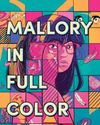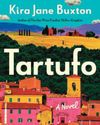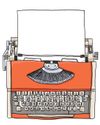
When a story isn't working when you know it's not quite coming With not together, when beta readers and crit partners confirm your fears but can't put a finger on why, or you're not getting offers from agents or publishers-savvy authors start trying to diagnose the issue by examining its component parts, like characterization, plot, and stakes.
But often, the problem is both more intrinsic and overarching than any one storytelling element; authors get lost in the trees and can't quite get a grip on the forest. If you know your story lacks something, the problem may be a missing, vague, or undefined central story question.
WHAT A STORY QUESTION IS (AND ISN'T)
The simplest way to think of your story question is as the main unknown that readers are reading to find out: Will Katniss survive the Hunger Games? How will Stella get her groove back? Where did Bernadette go-and why? Good, engaging stories have many unknowns, but it's this central question that gives a story its spine, that creates a propulsive throughline for the narrative that hooks readers and keeps them turning pages. The
central story question is a concrete and specific unknown with a clear, tangible answer.
Humans tend to be curious creatures. It's why suspense and tension are such powerful tools for hooking readers and creating momentum in your story. Give readers an unresolved question and--if you've earned their investment in your characters and their journey—they feel compelled to read on to find the answers.
The story question is the core unresolved issue that gives your story cohesion and provides the overarching framework for all the other mysteries and uncertainties that are laced throughout the most effective and compelling tales.
It doesn't work in a vacuum, but hand in hand with the other essential elements of story:
This story is from the January - February 2025 edition of Writer’s Digest.
Start your 7-day Magzter GOLD free trial to access thousands of curated premium stories, and 9,000+ magazines and newspapers.
Already a subscriber ? Sign In
This story is from the January - February 2025 edition of Writer’s Digest.
Start your 7-day Magzter GOLD free trial to access thousands of curated premium stories, and 9,000+ magazines and newspapers.
Already a subscriber? Sign In

Writing for the People We Hope to Become
Elisa Stone Leahy's new middle-grade novel, Mallory in Full Color, tackles the in-between moments of adolescence, when who we are and who we want to become collide.

Creating Community
Whether hot off the presses or on the shelves for years, a good book is worth talking about.

Pat Barker
The Booker Prize-winning author of Regeneration shares the role characters play in developing novel ideas and explains what appeals to her about reimagining mythology.

How to Write in Different Genres
Emiko Jean and Yulin Kuang share tips and strategies for how they successfully write in different genres and mediums.

The Shortest Distance Between Two Points
Ten tips for writing a novel with 100-word stories.

Mayfly Marketing
How to sell your novel in a short-attention-span world.

"You'll be a great essay".
How to write six types of personal essays by finding the funny in your life.

The Idea Factory
Tired of staring at an empty screen? Unlock your inner fiction generator with these surprising inspiration techniques.

Seinfeld Was Right: That's a Story
Use mundane moments from everyday life to create stories that pack a punch.
